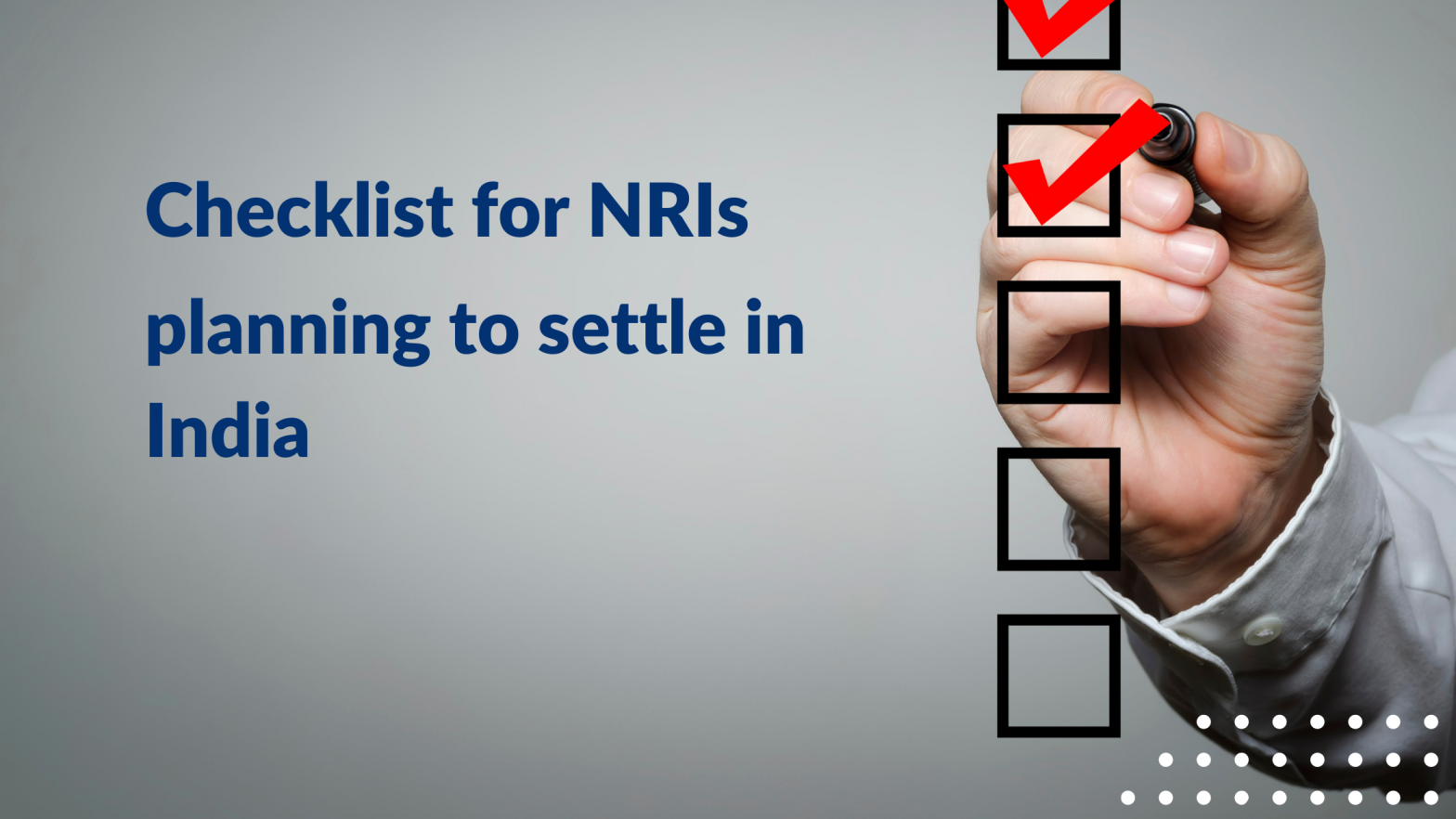Checklist for NRIs planning to settle in India

Are you a Non-Resident Indian (NRI) considering settling down in India? If so, there are several essential things to keep in mind before making a move.
In this article, we’ll explore some of the critical financial things NRIs should consider when settling in India.
But first, let us talk about the RNOR status.
A Non-Resident Indian’s status transforms from “non-resident” to “Resident but Not Ordinarily Resident (RNOR)” when they move permanently back to India. RNOR is essentially a temporary status granted to NRI returning to India before becoming legal citizens.
To have the RNOR status, you must have resided outside India for at least 729 days out of the previous seven fiscal years, or you must have been an NRI for nine of the ten financial years prior.
However, after three years, you automatically become a regular Indian citizen, and your income and gains on investments are taxed accordingly.
Bank Accounts:
Undoubtedly, bank accounts are the first thing you need to handle when you come back to India.
As an NRI, you might have a Non-Resident External (NRE) account or Non-Resident Ordinary (NRO) account. These are rupee-denominated accounts that can be opened in the form of savings, current or term deposits. NRO accounts let NRIs handle their income earned in India, whether rental income, dividend or interest. An NRE account is used for parking foreign earnings, which are free to be repatriated.
But now that you are back in India, you will have to convert your NRE/NRO account to a regular savings account. It is important to convert your account, as a delay can cause trouble.
Fixed Deposits:
When we talk about fixed deposits, as an NRI, you might hold NRE/NRO FDs or FCNR Account (Foreign Currency Non Resident) deposit accounts.
In the case of NRE/NRO FDs, you have to convert them to regular fixed deposits, just like the savings account with a guaranteed interest rate. However, the interest would be taxed according to your income tax bracket.
FCNR deposit is a type of account that enables non-resident Indians to park money in a foreign currency and earn tax-free returns. These deposits range from one to five years for specific currencies such as USD, Australian and Canadian dollars, Sterling pounds, Yen and the Euro. You might hold it till maturity. But if you desire to keep holding the foreign currency, you will need to convert it into a resident foreign currency (RFC) account.
Mutual funds
If you already have mutual fund investments in India, you must notify your bank of the shift in your residency status as soon as feasible. By doing this, you can make sure that any modifications to your mutual fund assets, such as liquidations or top-ups, go off without a hitch.
Stock investment
If you have a Portfolio Investment Services (PIS) account, you will have to close your account and open a regular brokerage, or Demat account meant for regular residents.
Insurance policies
After you return to India, you must buy insurance policies covering your life and health. The reason for this is that insurance policies purchased in another country will not be valid in India.
Physical assets:
You can continue holding your investments, such as land and buildings, even after becoming a resident individual. As per Section 6(4) of FEMA, you can keep your foreign assets without seeking any permission from the Reserve Bank of India or any other regulatory body. It doesn’t require any planning on your part. When you become a resident of India, you will have to pay income tax on your overseas property income.
Conclusion:
Settling down in India as an NRI can be an exciting but daunting prospect. However, by taking the time to prepare and plan, you can ensure a smooth transition and a successful move.
Download Wealthzi app: Invest in mutual funds, automated portfolio review and tracking



